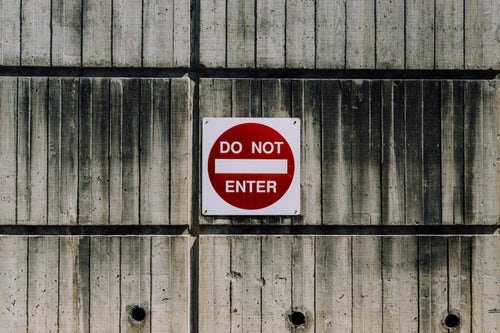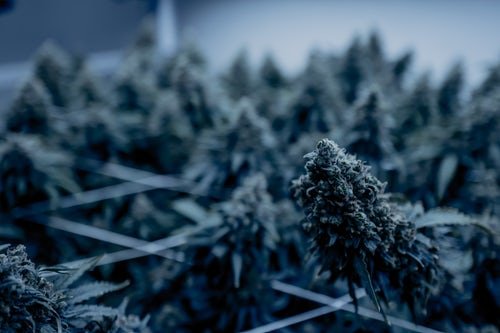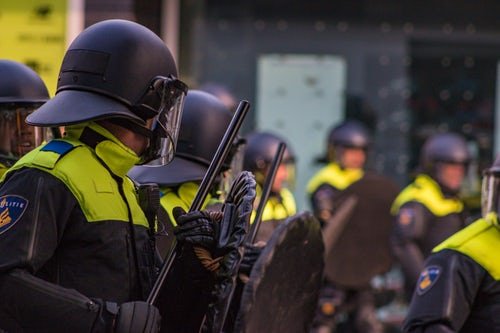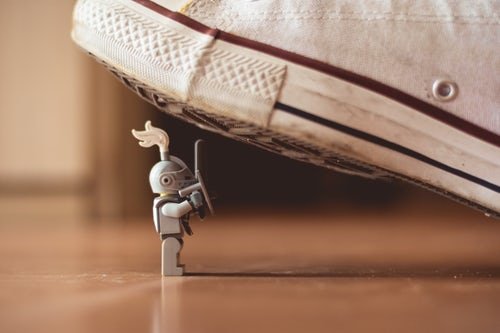Briefly Rambling about Bans

For a country that likes to talk about how free we are, Americans sure do seem to love banning things and we are not alone. Don't get me wrong. There are great reasons to ban some things. I don't particularly like the idea of reintroducing leaded gasoline in the name of freedom, for example. However, "ban it," or "cancel it," or "banish from polite society" seems to be the first and only solution that we are presented with when the public comes (or is led) to believe that some object, substance, person, subject, or behavior is "problematic," "detrimental," or "dangerous." Vapes and various gun accessories are on the chopping block at the moment but they are not unique. All sorts of other things are banned for dubious purposes and, unsurprisingly, those sorts of bans have little or none of their intended effect. Often, the belief that leads to these bans is misplaced or highly flawed. Remember, weed is still illegal according to the federal government because of its supposed "dangers." This ban happy tendency that we display seems (to me, at least) to contradict the values that we often claim to hold and that troubles me. However, the willingness of the authority to oblige our calls for bans is rather disturbing. I believe that our initial impulse to remove the things that we fear from society is an emotional one and that it is frequently unwarranted (particularly, when our fears are unfounded). Further, I believe that our emotional calls for bans can exploited by the powerful and the authorities in order to encourage us to willingly hand over more of our individual autonomy to them.
To be clear, this is not a "black and white" subject. Not all bans are a bad thing but not all things that are banned are bad. I am glad that there are prohibitions against slavery, cock fighting, and shitting in the street. Criminalizing those practices and many others serves a valuable purpose. On the other hand, we put people in jail for relatively harmless cannabis and mushrooms (to keep us safe from "dangerous" drugs) while allowing alcohol which is, unarguably, the most abused psychoactive substance in the world. That sort of ban is nonsensical and unnecessarily exposes people to an increased risk of being targeted and abused by the authorities for choosing engage in an activity that only affects the individual user and poses no credible threat to society.

People are prone to panic. This serves a purpose. We see a threat and we run from it in order to preserve our lives. A problem only occurs when the threat is not real or is greatly exaggerated. In modern society we often "run" by asking for our government to deal with the threat by force. The government happily agrees and proceeds to tell people "if you endanger society with your scary marijuana, we will put you in jail and we will kill you if you resist our attempt to put you in jail." The frightened herd sleeps easier, even though they are no safer than they were before, and the authority grows more powerful and more oppressive.

The increase in the power of the authority should be a primary concern when we discuss new prohibitions. People are emotional creatures and our impulse to act on those emotions, whether they are justified or not, can be forgiven and, with practice and patience, corrected. However, the exploitation of our emotional calls for bans is a logical and self-serving action taken by a power hungry authority. The governments of the world rarely need too hard of an "arm-twisting" to comply with the public's call for a ban on using this drug, burning that flag, owning those curvy magazines, or using a particular kind of speech. Of course, repealing those bans is far harder implementing them because maintaining them directly serves the interest of the authority by empowering it to intrude into individual affairs. When we call for the criminalization of a thing (especially when that thing doesn't really need to be criminalized), we tell the authority that we consent to allowing it to control another small (or not so small) part of our lives and we lose another small (or large) part of our individual autonomy. We hand them a gift and they happily accept it and abuse it against us.

Long ago, we wanted safer streets and we prohibited drugs because we thought (or were told) that it would help achieve that goal. Now, we live in a dystopian police state because the authorities convinced us that they need tanks and seemingly unlimited power to abuse the population and steal their property to keep us safe from drugs. They can shoot our dogs and pillage our houses to "protect society" from cannabis. They can kill us in the streets and kidnap children from their parents to enforce a ban mushrooms or some other drug, and they do because they derive power from enforcement. Some of us realized our mistakes and have been trying to reform some of those laws to varying degrees of success. There is progress on cannabis but psychedelics will land a person in prison. We have resisted most major censorship in this country but there is are renewed attempts. Vapes, salvia and kratom are being unjustly outlawed as other drug laws are liberalized. The list can go on. My point is that surrendering a freedom can have unintended consequences and once it is given away, it is very hard to take it back. That being the case (in my mind, anyway), we should try to avoid asking for bans. If they are to be implemented, they should be a last resort after we have calmly examined an issue and exhausted all other solutions.
Peace.
All the images in this post are sourced from the free image website unsplash.com.
It's the same old, age-old old divide and rule. Destroy all common ground and set us against each other so that each side clamours for the subjugation of their opponents, demanding legislation to silence the dissenting voices. We can see it now with the climate change disciples screaming for denial to be criminalised.
"Destroy all common ground and set us against each other so that each side clamours for the subjugation of their opponents"
Truth.
To listen to the audio version of this article click on the play image.

Brought to you by @tts. If you find it useful please consider upvoting this reply.